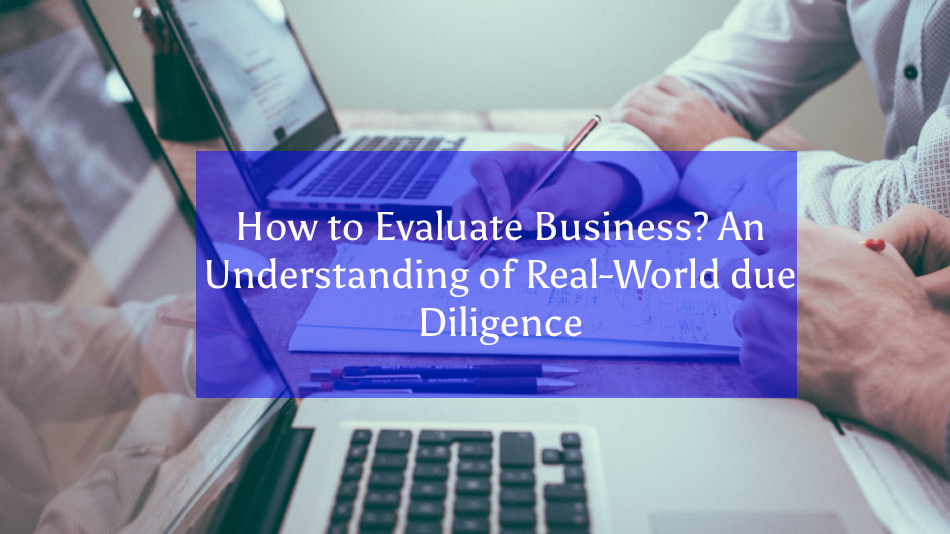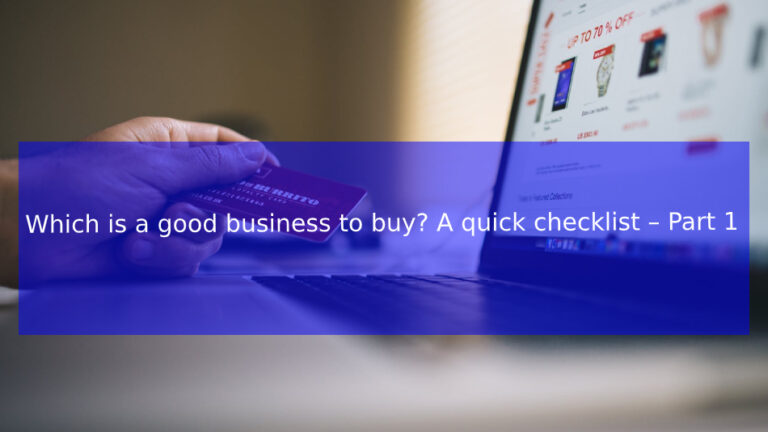What is Due diligence?
Before we deal with the topic at hand, we need to understand what the term due diligence in entrepreneurship parlance means. ‘Due diligence’ refers to the process of checking out a proposal for potential flaws, or generally refers to the practice or exercise of care that a business or an individual should conduct before entering into any contract or agreement with another party, individual, or an act, with a certain degree of care and foresight. It is not limited to just Venture Capitalists (VCs) and Angel Investors.
Evaluation of business based on real-world due diligence:
First, you need to be very skeptical, no matter even if you have a personal relationship already with the buyer or seller. You need to tell him or her upfront that the name of the game is business and play it accordingly without entering into the personal space. Remember to check facts without bias, and talk to people to validate information accurately. Also, tell the other party openly that in the case of disagreement, alternate trading arrangements be made suitably so as not to mess up relationship. This said here are some pointers based on the discussion above, before you end up buying or selling any business online:
# Ask the buyer or seller for all the pertinent information involving business trading including tax statements, financial statement, customer or client communication records, emails, costs, billings, invoices, history of complaints, contact information of suppliers, vendors, retailers, channel partners, franchisees or distributors, and contact information & records of past customers—both satisfied and dissatisfied ones. Do they get complaints frequently? How long have they been associated with the buyer or seller? How would they rate their experience so far with the seller or buyer? Call the company’s main customers whose contact details you may get.
# Don’t take the buyer or seller’s word for truth—things may always look fine at face value. Assume that the information you received has been carefully sifted to leave out anything that doesn’t corroborate the buyer or seller’s argument.
# Though the website of the seller or buyer may have basic business information including the management team, investor details, board of advisors and directors, key executives, and generally the principles that govern their business, it is important to source information that may help business trading from other medium, and people, including competitors, who will be able to help you until eventually you get to the right person for information.
# Make it a point always to go beyond the information provided by the seller or buyer. Check out if the party involved has a dubious credential or shady reputation in the past, or you may get duped easily.
Looking to buy or sell your business online? With GBCOPRP, you are in safe hands. Touch base with us today for related consultation and advisory services.



